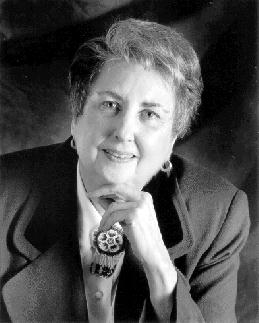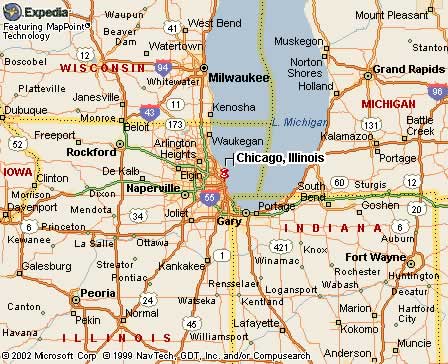|
|
Canku Ota |
|
|
(Many Paths) |
||
|
An Online Newsletter Celebrating Native America |
||
|
January 25, 2003 - Issue 79 |
||
|
|
||
|
Thanks to one scholar, study of Native literature became a vital academic field |
||
|
by ROBERT BECKER / Chicago Tribune
|
||
|
credits: Photo - LaVonne Brown Ruoff |
|
"My children were learning absolutely nothing about American Indians in school," said. "The only time schools — and this is largely still true — deal with American Indians is at Thanksgiving, when every Indian in Chicago loves to leave town." Ruoff's personal interest melded with her professional life as a professor of English at the University of Illinois at Chicago, where for the next 30 years she helped orchestrate the acceptance and appreciation of Native American literature in academia. Ruoff's remarkable efforts, which paralleled a growth in interest in Native American writing, were honored recently in New York, becoming just the third recipient of the Modern Language Association's Award for Lifetime Scholarly Achievement. Through her discoveries in archives and libraries around the country of long out-of-print works by Native Americans, Ruoff has shepherded dozens of obscure works back into print, providing key historical and cultural context for a literary tradition as old as the country. Along the way, Ruoff has befriended and mentored a generation of writers and scholars who have transformed the study of Native American literature into a vital academic field. "She has done more for Native American literature than anyone in history," said Gerald Vizenor, the noted Native American author and professor at the University of California at Berkeley. "She's been at it for so long and is so dedicated to the subject. ... She's done it with determination and brilliance." Scholars also think that Ruoff's award from the MLA, the pre-eminent professional organization of scholars of literature, also makes an important statement about the status of Native American studies in academia. The two previous winners are Shakespearean scholar Maynard Mack and feminist author Carolyn Heilbrun. "I think it's a really important sign because this is such a small group of people (who have won)," said Kenneth Roemer, a professor at the University of Texas at Arlington and an expert in the field. "To have someone in Native American literature will certainly help." At 72, Ruoff has seen momentous changes in attitude toward Native Americans and their culture — both in society and academia. In a recent interview in her spectacularly restored Victorian home in Oak Park, which she shares with her husband Gene — a former UIC English professor — Ruoff recalled the events shaping her interests in Native American literature. Ruoff said her early exposure to Native American culture came from stories she heard from her father, who worked as a cowboy in North Dakota from 1905 to 1910. Ruoff said in addition to making a living as a homesteader, her father managed an American Indian baseball team that traveled the territory playing other Indian teams. Ruoff said her father lived 40 miles from the nearest Caucasian town and became friends with a number of Indian families. "He told us about dining with them and he had pictures of the families, which I loved to go through," Ruoff said. Ruoff's family ended up in the south suburbs of Chicago, where her father worked at a steel mill. She attended Thornton Township High School and ultimately landed at Northwestern, where she studied English. In those days, literary studies rarely ventured beyond the staid boundaries of traditional English and American authors. Ruoff settled on 19th century British Romantics, focusing on poet Walter Savage Landor. In graduate school, Ruoff and her first husband adopted two children, including a daughter who is Ojibwa. After getting her doctorate from Northwestern in 1966, she joined the faculty at UIC, where she taught Romantic literature. In the early 1970s, Ruoff also got involved in a federally funded support program for Native Americans at UIC, teaching a composition course from a text she was forced to develop because none existed. "That was a terrible problem in the early 1970s," Ruoff said. "We did a lot of Xeroxing." As Ruoff began sifting through archives for texts, modern Native American writers were grabbing public attention. N. Scott Momaday, who was raised on reservations in the Southwest, won a Pulitzer Prize for his 1968 novel, "The House Made of Dawn." Other writers like Vizenor, Leslie Marmon Silko and James Welch also attracted favorable critical attention. What was missing, experts say, was the historical context in which to place the work of these writers. Who were their predecessors? Modern American authors knew—and could study—their literary forebears. Hemingway, for example, could acknowledge that "all modern American literature comes from one book by Mark Twain called `Huckleberry Finn."" It was not so easy for Native American writers — until Ruoff and others began pushing back the known boundaries of native literature. "She's reached into the past and tried to establish the foundation for Native American literature," said Vizenor. "That's the hard work." Ruoff's work has highlighted what she terms the first Native American best seller — a 1772 "execution" sermon by Samson Occom, in which the Mohegan Indian, who was also a Presbyterian missionary, warned about the evils of alcohol. Ruoff co-edited the letters and speeches of George Copway, the Canadian Ojibwa writer who rose to prominence in the mid-19th century as spokesman for temperance and native rights. Ruoff also revived the first novel written by a Native American woman, S. Alice Callahan's "Wynema: A Child of the Forest." Written right after the massacre at Wounded Knee and published in 1891, the novel tells of the relationship between Wynema Harjo, a Muscogee (Creek) Indian, and a Methodist teacher from a genteel southern background. "Ah, happy, peaceable Indians," Callahan writes in the opening pages of her novel. "Here you may dream of the happy hunting grounds beyond, thinking little of the rough, white hand that will soon shatter your dream and scatter the dreams." Ruoff said the novel is significant for the themes it explores. "It's an attempt to show what Muscogee life was like and also it shows the possibilities of adapting to white education," said Ruoff. "She also incorporates a lot of political issues of the era." There was a time when the body of Native American literature was so limited that Ruoff and her colleagues were familiar with every work. But the efforts of Ruoff and others have helped populate the shelves of libraries with new works and fuel the dissertations of new scholars. "Today it's so diverse," said Vizenor. "It's more like the reality of American literature." Ruoff said she doesn't want Native American literature to remain a scholarly specialty of interest only to doctoral students. She believes it's important that high school — and even grade school students — gain familiarity with what is the ultimate "American" literature and learn an important lesson in the process. "That's how you can prevent the creation of stereotypes," she said.
|
|
|
||
|
|
||
| Canku Ota is a free Newsletter celebrating Native America, its traditions and accomplishments . We do not provide subscriber or visitor names to anyone. Some articles presented in Canku Ota may contain copyright material. We have received appropriate permissions for republishing any articles. Material appearing here is distributed without profit or monetary gain to those who have expressed an interest. This is in accordance with Title 17 U.S.C. section 107. | ||
|
Canku Ota is a copyright © 2000, 2001, 2002, 2003 of Vicki Lockard and Paul Barry. |
||
 |
 |
|
|
The "Canku Ota - A Newsletter Celebrating Native America" web site and its design is the |
||
|
Copyright © 1999, 2000, 2001, 2002, 2003 of Paul C. Barry. |
||
|
All Rights Reserved. |
||
 CHICAGO
— LaVonne Brown Ruoff's interest in American Indian literature
began not as a scholar but as an adoptive parent of a Native American
child.
CHICAGO
— LaVonne Brown Ruoff's interest in American Indian literature
began not as a scholar but as an adoptive parent of a Native American
child. 